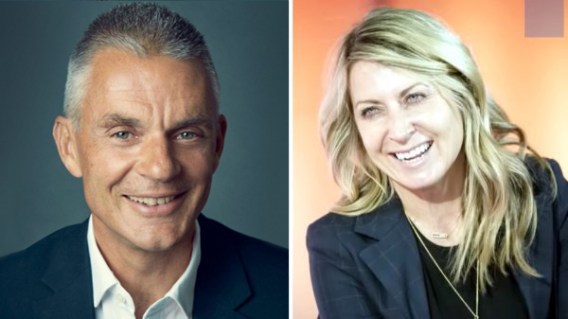
BBC rocked as executives quit over Trump speech edit

Tim Davie and Deborah Turness step down following Trump documentary backlash
Two senior BBC executives have stepped down following controversy over a documentary that heavily edited a speech by Donald Trump.
Director-general Tim Davie and CEO of News Deborah Turness both announced their departures after a leaked memo revealed that Panorama had spliced together two sections of Trump’s speech to imply he explicitly encouraged the January 6 Capitol Hill riots.
Their resignations come as criticism of the documentary appears to be the “straw that broke the camel’s back” for the beleaguered broadcaster after a turbulent year.
Davie, who has been with the BBC for 20 years and its leader since 2020, admitted there “been some mistakes made.”
“In these increasingly polarised times, the BBC is of unique value and speaks to the very best of us. It helps make the UK a special place; overwhelmingly kind, tolerant and curious,” he said in a statement.
“Like all public organisations, the BBC is not perfect, and we must always be open, transparent and accountable. While not being the only reason, the current debate around BBC News has understandably contributed to my decision.”
Davie, who leaves behind a remuneration package worth up to £544,999 (A$1.1 million), said he was still in discussions with the BBC board over the timing of his exit and the appointment of his successor.
Meanwhile, Turness has led BBC News and Current Affairs since 2022, having previously served as chief executive of ITN and president of NBC News International.
In a separate resignation statement, she said “the buck stops with me” regarding the Panorama documentary, Trump: A Second Chance?, which was broadcast a week before the US presidential election in October last year.

Turness added that the documentary criticism had “reached the stage where it is causing damage to the BBC – an institution that I love.”
First revealed by British newspaper The Telegraph, the leaked memo marked the latest in a series of controversies to hit the BBC this year, including a Gaza documentary found by the UK regulator to have breached broadcasting rules.
Enjoying Mumbrella? Sign up for our free daily newsletter.
The broadcaster also came under fire over its Glastonbury coverage, after it failed to air a performance by Irish rap group Kneecap while livestreaming a politically charged set by Bob Vylan.
At the same time, the BBC has long faced simmering accusations of bias and persistent questions over its impartiality.
Davie is far from the first director-general to leave the BBC under a cloud.
In 2004, Greg Dyke stepped down from the BBC during what was described as the broadcaster’s “biggest crisis in its 82-year history,” after an inquiry severely criticised its journalistic integrity in reporting on the run-up to the Iraq war.
The reporting, which centred on claims that the government had “sexed up” a dossier on Iraq’s weapons of mass destruction, led to the identification of David Kelly as a source. Kelly subsequently killed himself.
Eight years later, George Entwistle resigned after 54 days in the role following a documentary that falsely implicated a Conservative politician in a child abuse case, in tandem with criticism of its handling of the Jimmy Savile revelations.


